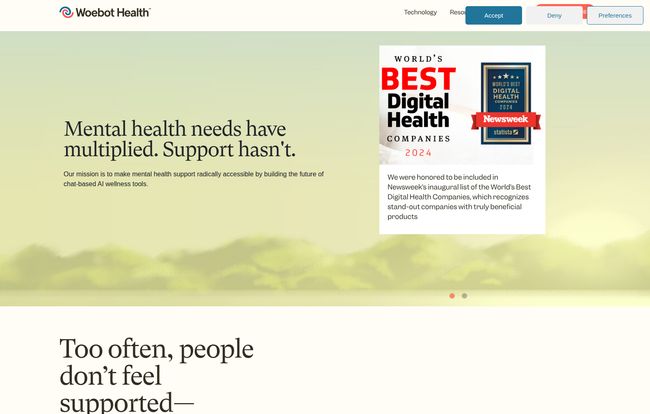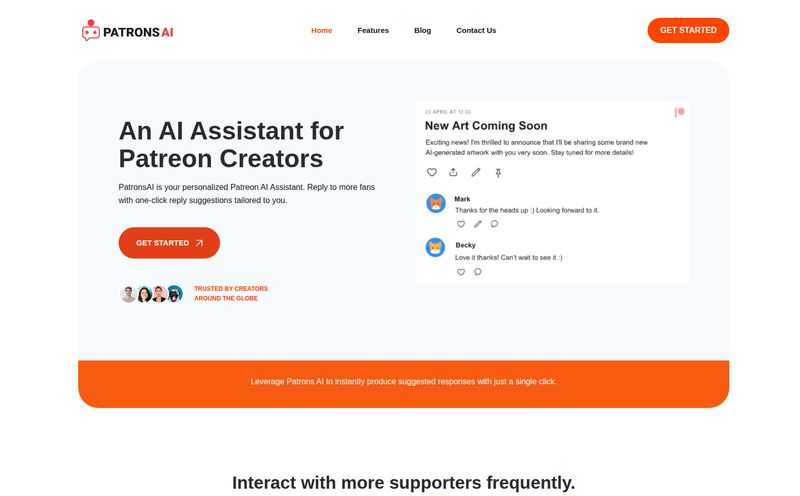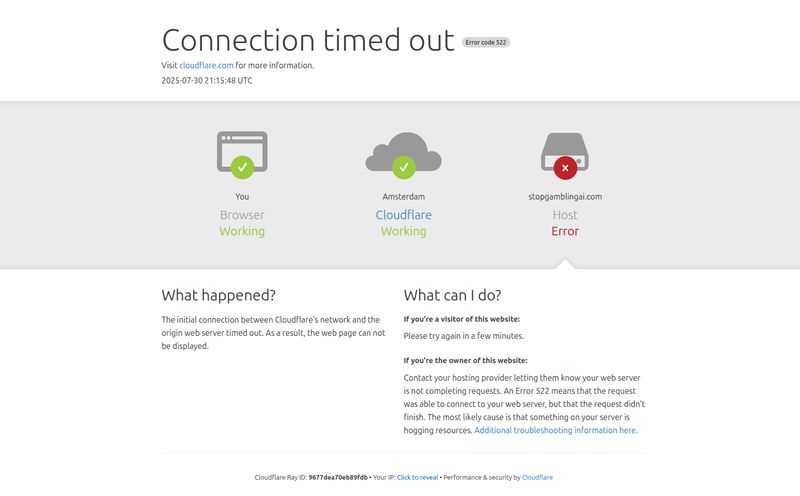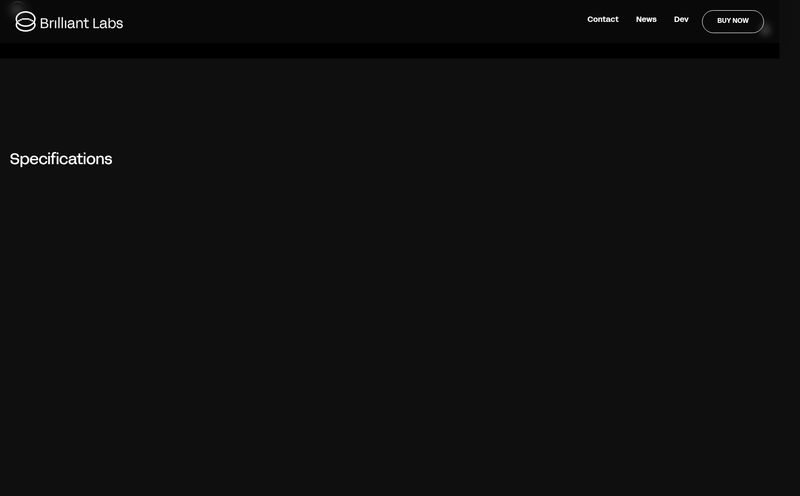The daily grind is… a lot. As someone who lives and breathes the chaotic world of SEO and digital marketing, my brain often feels like it has way too many tabs open. The pressure to perform, the constant algorithm changes, the endless analytics—it can be a real mental tax. And I know I'm not alone. We're all juggling something. Finding genuine, accessible mental health support in the middle of all that chaos can feel like trying to find a parking spot at the mall on Christmas Eve. It’s expensive, there are waiting lists, and who has the time?
So, when a tool like Woebot Health pops onto my radar, my professional curiosity gets piqued. An AI-powered chatbot designed to be a 'personal mental health ally'? My inner skeptic and my inner tech-optimist immediately start a cage match. Is this just another gimmick in the ever-crowded wellness space, or is it something... more?
So, What Exactly is Woebot Health?
At its core, Woebot is an AI chatbot you can talk to on your phone. But calling it just a chatbot feels a bit reductive, like calling a smartphone just a phone. It's designed from the ground up by a team of psychologists and AI experts, led by Dr. Alison Darcy, a clinical research psychologist from Stanford. That's a pretty serious pedigree. This isn't just some script-reading bot cobbled together over a weekend.
Their whole philosophy, as they put it, is to make mental health support “radically accessible.” They aim to bridge that massive gap between needing support and actually getting it. And it seems like they're doing something right—they were even named one of the World's Best Digital Health Companies of 2024 by Newsweek. That’s not a small pat on the back.

Visit Woebot Health
My First Impressions: More Than Just a Bot
We’ve all had those infuriating experiences with customer service chatbots, right? The ones that just keep repeating, “I’m sorry, I don’t understand the question.” You end up furiously typing “TALK TO HUMAN” over and over. I half-expected that from Woebot. I was pleasantly surprised.
The conversation feels… different. It’s built on the principles of Cognitive Behavioral Therapy (CBT), which is a gold-standard, evidence-based psychological approach. So instead of just offering platitudes, Woebot asks insightful questions. It helps you identify negative thought patterns (what CBT calls 'cognitive distortions') and gently guides you to reframe them. It's like having a little CBT workbook that talks back to you, checks in on you, and never gets tired of your circular thinking.
The Science Behind the Smile
This is where it gets interesting for me. In the wellness world, there’s a lot of fluff. A lot of nice-sounding ideas with zero scientific backing. Woebot, however, leans heavily on its clinical research. They've published studies, like one in the Journal of Medical Internet Research (JMIR), that showed a significant reduction in symptoms of depression and anxiety among users in just two weeks.
This is a big deal. It suggests that this isn't just a placebo effect; there’s a measurable, positive impact. They're also very careful about their claims. On their site, they have a disclaimer about ORCHA certification and the FDA, which, paradoxically, gives me more confidence. It shows they're taking the regulatory side of health tech seriously, not just making wild west promises.
The Good, The Bad, and The AI
No tool is perfect, and it’s important to see both sides of the coin. Woebot is a powerful tool, but it's a specific kind of tool for a specific kind of job.
The Upsides of an Always-On Ally
The biggest advantage is staring us right in the face: 24/7 accessibility. That 3 AM wave of anxiety? The Sunday evening dread before the work week? Woebot is there. There's no scheduling, no waiting for an appointment, no feeling like you're bothering someone. For immediate, in-the-moment support, that is genuinely revolutionary. It’s also incredibly private. For someone who might feel a stigma around seeking help, chatting with a bot can be a much easier first step than booking a therapy session. It’s a judgment-free zone to just get the thoughts out of your head.
Where Woebot Isn't a Wonder Drug
Now for the reality check. And this is the most important sentence you’ll read in this article: Woebot is not a replacement for a human therapist. It just isnt. It’s a fantastic supplement, a powerful tool for self-management, and a great entry point into mental wellness. But it can’t diagnose conditions, it can't handle severe mental health crises, and it doesn’t have the nuanced, lived experience of a human clinician. It's a sparring partner for your mind, not a doctor for your brain.
And of course, there’s the AI privacy question. We're giving our thoughts and feelings to an algorithm. Woebot Health is very transparent about their privacy policy and security measures—they seem to take it very seriously—but it’s something every user should be mindful of. You have to be comfortable with that data exchange.
What About the Cost? A Look at Woebot's Pricing
This is where things get a bit cloudy. If you go to their site looking for a 'Buy Now' button, you won’t find one. Instead, you’ll see a “Join Interest List.” After a bit of digging, it seems Woebot Health primarily partners with employers, universities, and health plans. So, you likely won't be paying a monthly subscription out-of-pocket. Instead, you might get access to it as a free benefit through your job or school.
In my opinion, this model actually aligns perfectly with their mission of making support accessible. It removes the direct financial barrier for the end-user, which is often the biggest hurdle of all.
Who is Woebot Actually For?
So, who should download this? I see a few clear profiles.
- The Stressed Professional: Juggling deadlines, meetings, and wanting a tool to manage daily work stress and prevent burnout.
- The Curious Student: Overwhelmed by exams and social pressures, looking for a private way to understand and manage their feelings.
- The Therapy Newcomer: Someone who is 'therapy-curious' but not ready to take the leap into talking with a person. Woebot can be an amazing primer on the concepts of CBT.
It's probably not the right primary tool for someone dealing with complex trauma, a severe psychiatric condition, or who is in an immediate crisis. In those cases, please, talk to a human professional. The 988 Suicide & Crisis Lifeline is always available.
My Final Thoughts on This Pocket-Sized Pep Talker
After spending time looking into Woebot Health, I'm genuinely optimistic. I went in expecting a novelty and came away impressed by its thoughtful design and scientific grounding. It's not a magic bullet that will solve the mental health crisis. But it is a smart, compassionate, and incredibly accessible tool that puts evidence-based support into the hands of people who might otherwise get none. It's a compass for teh cloudy days, not a rescue boat for a hurricane. And for millions of people, a compass is exactly what they need to find their way.
Your Woebot Questions Answered
1. Is Woebot a real therapist?
No, and this is a critical distinction. Woebot is an AI-powered tool for mental wellness and self-management. It uses principles from therapies like CBT, but it is not a licensed therapist, cannot provide a diagnosis, and is not a substitute for professional clinical care.
2. How much does Woebot cost?
Woebot Health primarily partners with organizations like employers, health insurance providers, and universities. This means for many users, access is provided as a free benefit. There isn't a direct-to-consumer subscription model at this time.
3. Is my data safe with Woebot?
Woebot Health states that they are committed to user privacy and data security. They have a detailed privacy policy and adhere to regulations like HIPAA where applicable. However, as with any digital service, it's always a good idea to review the privacy policy yourself to ensure you are comfortable.
4. Is Woebot approved by the FDA?
Woebot Health has received Breakthrough Device Designation from the FDA for specific products related to postpartum depression and adolescent depression, which helps expedite the review process. However, the general wellness app itself is not FDA-approved in the same way a medical device or drug is. They are certified by ORCHA, an independent digital health evaluator.
5. What techniques does Woebot use to help?
Woebot's conversations are primarily built on the foundations of Cognitive Behavioral Therapy (CBT). It also incorporates elements from other evidence-based approaches like Dialectical Behavior Therapy (DBT) and Interpersonal Psychotherapy (IPT).
Reference and Sources
- Woebot Health Official Website
- Newsweek's World's Best Digital Health Companies 2024
- Effectiveness of a Self-Guided, Web-Based Conversational Agent (Woebot) for College Students - JMIR Mental Health
- Woebot Health Privacy Policy
- 988 Suicide & Crisis Lifeline



